Collard
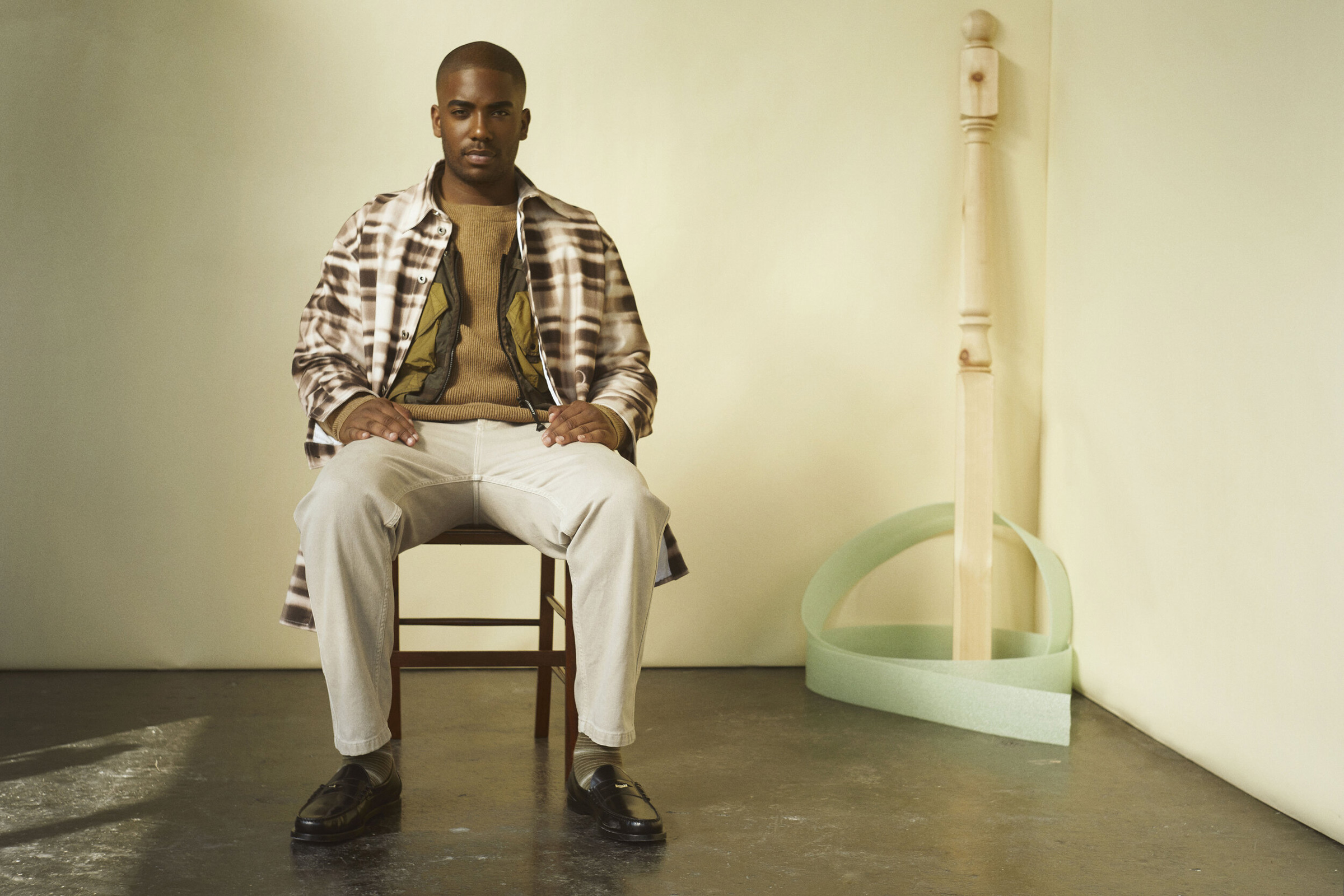
«I think it’s okay to just be easier on yourself now»
Josh Collard, the singer from South London better known by his alias, Collard, has just returned from Milan when we speak via video call. He’d been flown out to perform at the Bulgari event for MFW. It was the first time he’s been able to play live since lockdown hit, and though it may not have been the dream show – ‘I only got to do three songs, it was great but, you know, no one knew who I was really except the people that booked me.’ It was, he says, a tough crowd, but it was also likely the first time in half a year that the fashion set would have been able to see each other. He had good fun though; ‘it was just nice seeing my guitarist again as we’ve not had a reason to be face to face yet.’
Collard’s upbringing is one of the first things you’ll find when you Google his name; brought up in a strict Mormon household, too much of a troublemaker to be baptised at the age of eight (then becoming convinced he was a sinner), surrounded by music by the likes of Janis Joplin, James Brown and Prince. He joined the hip-hop collective Last Night in Paris at the age of 19, but it wasn’t really him. ‘I was doing crazy performances that I didn’t enjoy, that didn’t feel was a direct reflection of me. I felt like I was always up there emulating something else. I’m not a jump about person – there was a lot of jumping about and rapping. I’ve got asthma; I’m a two-stepper slow grinder, that’s what I do.’ And so, he left.
‘I didn’t have my own intense love creatively for a genre,’ he recalls, rather a ‘love for different genres and different music that just felt like a hobby.’ He was just recreating what was popular, musically, at the time and not really pushing the limits of his potential. That changed on a trip to LA with his producer, Zach Nahome, where he began to experiment more and veer away from the realm of hip-hop and into the territory of a more eclectic mixture of soul and smoother R’n’B. ‘It wasn’t until LA that I let the shackles go a bit.’ And 2019’s Unholy, Collard’s debut release, encapsulated his new sound perfectly. The album received rave reviews, and comparisons to a modern-day James Brown of sorts – James Brown with the addition of a feature with rapper, Kojey Radical.
When listening to Unholy, it’s possible to hear all the different elements that come together in Collard’s current sound; the influence of Motown, the references to religious themes, and the inherently twenty-first century twist. He speaks about creating something that takes from the past, with a modern outlook – something you can propel forward and make completely your own. That, Collard notes, is how music changes to reflect a new era, through exploration and design. He has a keen eye for detail, appreciating the visual side of making music as much as the sound – which is apparent in the way he enthuses about scrolling through albums on his phone, being visually stimulated by seeing the artworks, condensed and filed.
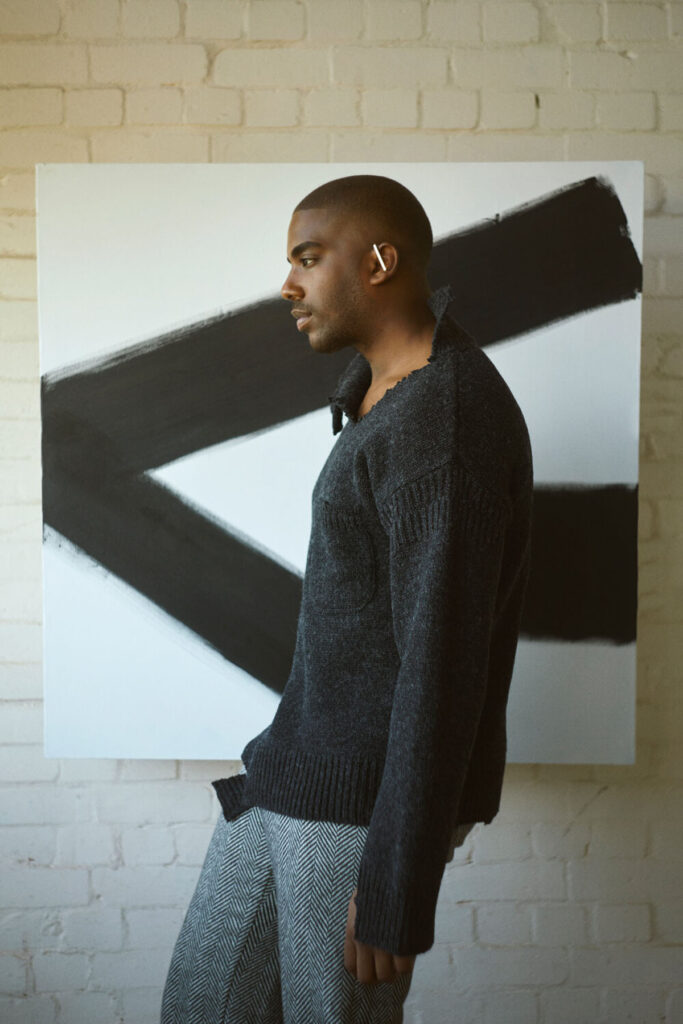
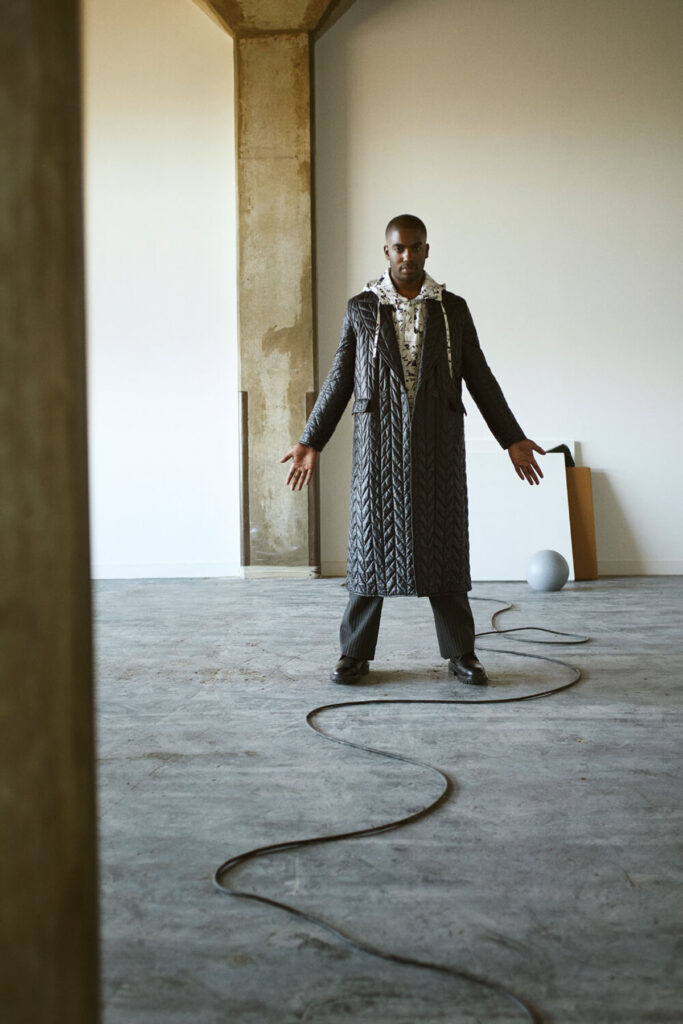
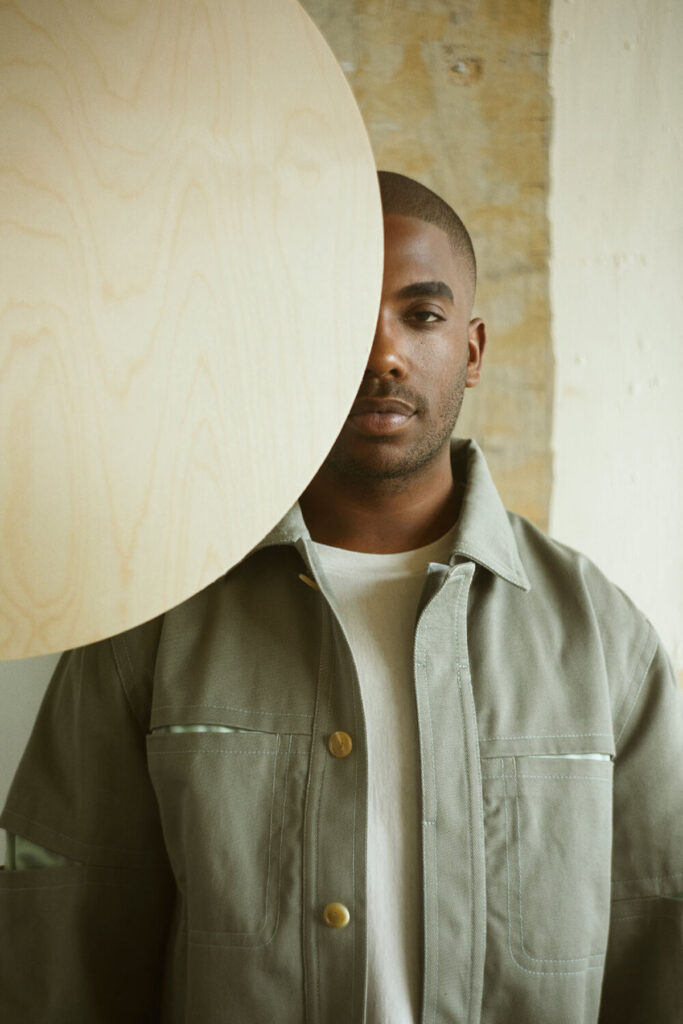
When it comes to the visuals that supplement your music, is there anything you gravitate towards?
I like uniform, order, structure. I like the kind of Wes-sy Anderson aesthetic, or Stanley Kubrick, where everything’s got a purpose; all the colours have got a purpose, it all makes sense and it’s all uniform. I liked the shoot [for NR, at Purpose: The Archives in Tottenham] because I think it worked with my creative direction; the colours were pretty uniform, the backdrop was pretty uniform, the grey, the cement, everything. It looked pretty futuristic in a way. My favourite city is Stockholm – that place feels like a glimpse into the future. I’d say that visually, that’s my thing: with my creative directors, everything is about accentuating my love for uniformity and the need for things to make sense and kind of mesh. That’s what I’m visually attracted to.
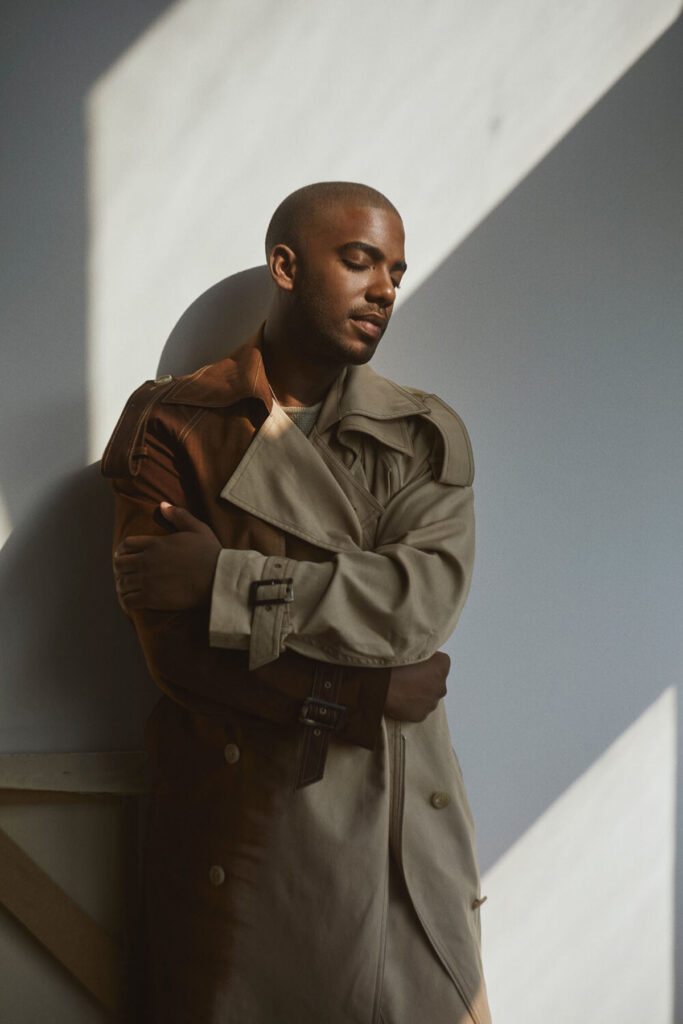
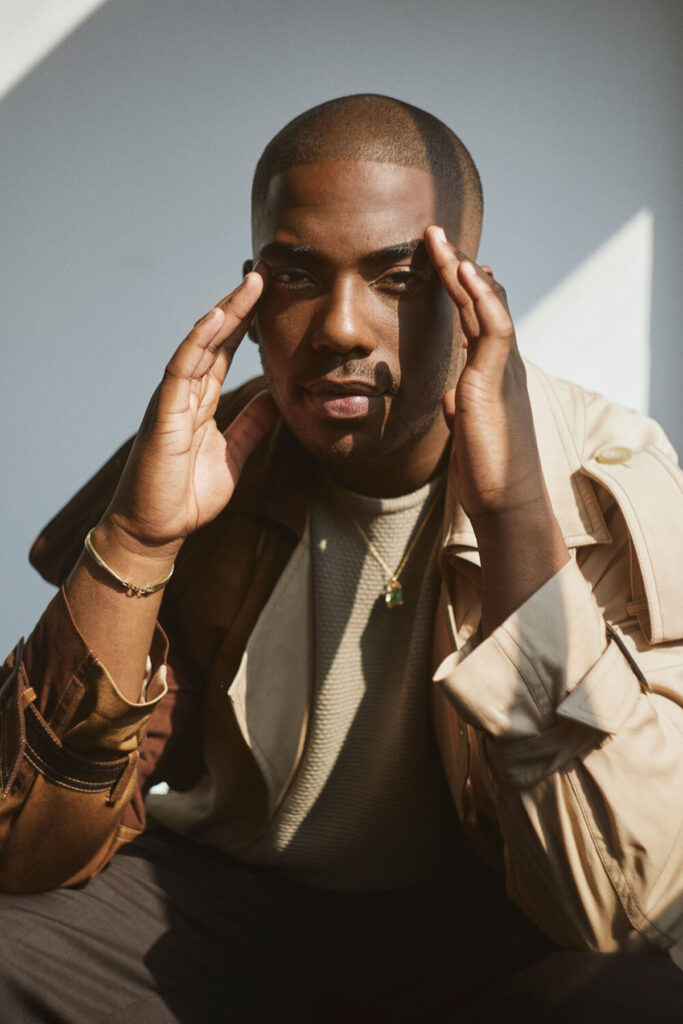
Do you apply that same logic to making music, or are they quite separate approaches?
Yeah, no – it’s not chaotic at all. It’s actually very uniform in terms of my layout. What I think about might be chaotic, or the situation might be chaotic, but I like to get it into a neat form so I can contain myself, you know? I like to start with the chorus – I always go with the chorus first – and once I’ve got the drift of what I’m really piecing together, that’s when I get into the verses. And I still love a uniformed 3:20 song. I love it you know; when it sounds like it could be at the end of a movie, or something like that, and you’ve got to fit within the constraints of that, which is beautiful. That you can fit something so wild, so personal, and you know, say the most out of this world things (which I sometimes say in my tracks), but fit it into this orderly fashion – that’s how I create for sure.
A lot of stuff has happened this year, and in light of that, it would be interesting to know if the past seven-eight months have changed how you make music and your outlook on things?
I think my outlook has changed because I realised I wanted to be more present in music. I do like uniformity; I do like creating catalogues, but I think it made me want to explore different ways of presenting myself and my music. Not so rigid, and not so time-consuming. I’m excited to do another album, but I’m also dreading it, you know? I can’t speak for other people but, for me, it’s such a – it’s a positive, but positively-draining process that I don’t know if I want to dive back into. So, having the quarantining time and then not having to release anything [at that moment], I got into a thought process where I was like, this doesn’t need to be for a catalogue, maybe it can be just a theme. Just two songs; you love it, just put it out. Every artist’s thing is that they won’t make anything as good as the last song that did well, but I think if you get caught in that loop, you really stop yourself from just putting your art out there. Not that you should be hitting it all the time with “content, content, content,” but I think it’s okay to just be easier on yourself now. I think that was a big thing for me to learn, so I think that’s my plan in future – I’m going to fall into making an album, but my releases are just going to be fluid and what feels right.
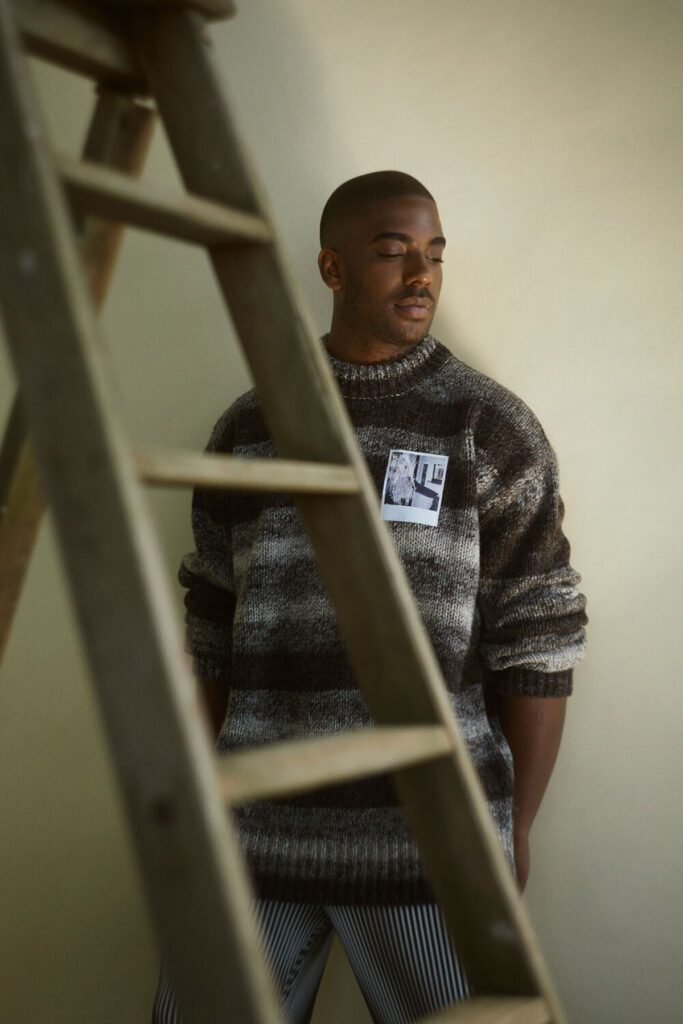
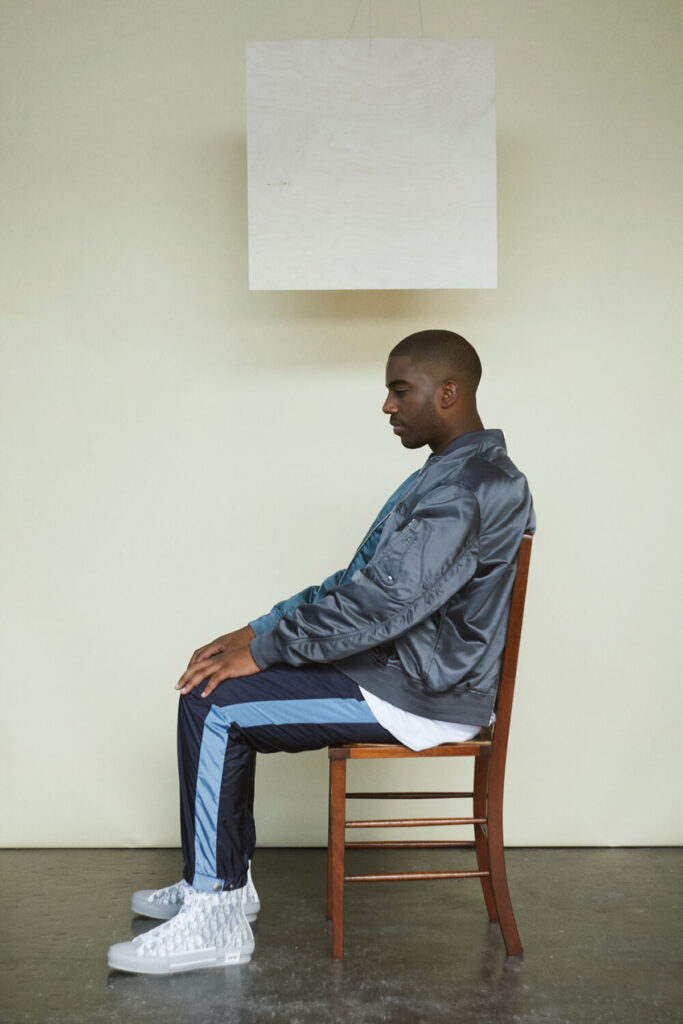
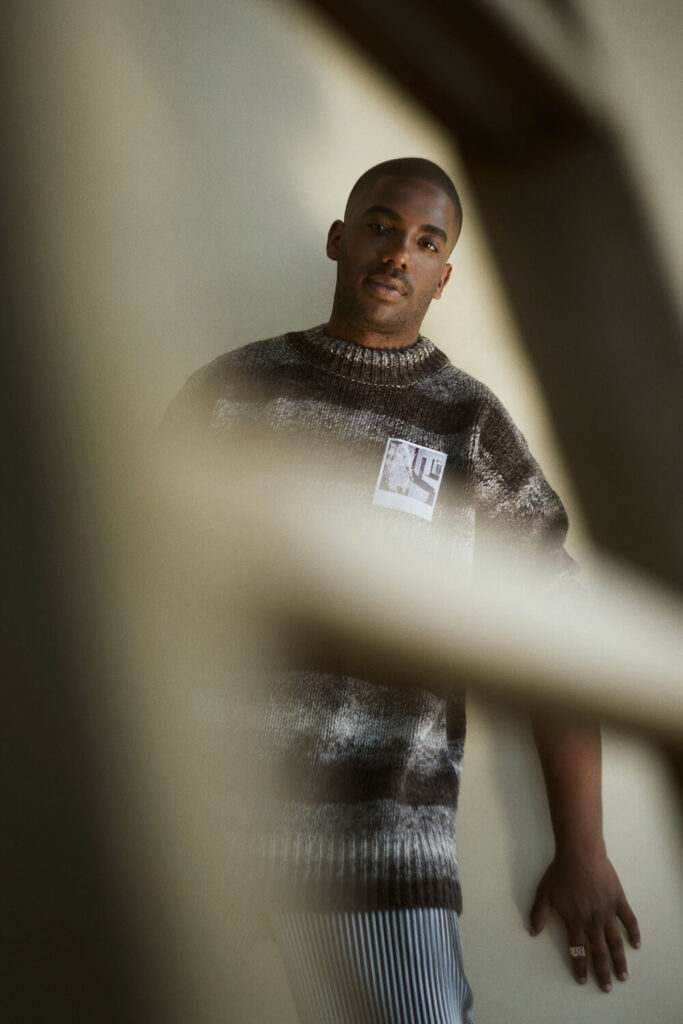
Have you been able to making anything in the past couple of months?
So, I didn’t get into the studio for a while because I work really closely with Zach and, at the time I was like, if I’m working, I’m only working with that guy because I know him and he’s a very hygienic man – you know what I’m saying. And we waited because he’s got a household and I’ve got asthma so we chilled for a while, but since we got back in, we’ve been able to actually make quite a few songs. We haven’t stopped. That’s just the way we work though; we get in, make three-four songs, you know – so we got right back up to speed at least. I’ve been working with him for a decade – nearly a decade now – so the process is always easy to get back into. I mean, it was the same as how we always work: just me and him, so with social distancing, I mean, maybe I spent a bit more time in the booth while he was in the control room, but that’s about it.
You mention being a bit more fluid when it comes to making music now, but the sounds and themes of Unholy were quite specific to that album, so are you likely to consider veering off to explore other topics or inspirations?
Yeah, I think that’s the bit I’m trying to protect right now and not force. It’s not the continuation of the sound, but the continuation of the narrative; I don’t want to force the narrative on the next album. So, it’s about figuring out what will fit for this one, what I want to talk about. I think, in terms of organisation, I don’t want to see myself swaying from a 10-track album: and the timings, I love an interlude dead in the middle. I don’t think I’ll change from that format, it’s a nice “Collard” format. But who knows? Sometimes, I’m two songs in, like with Unholy, it was after one and a half songs that I realised what it would sound like. Once I’ve found those one or two songs and the narrative for the next album, I’ll know what to do and what direction to go in. And obviously I’m not trying to make a carbon copy of Unholy, but in terms of musical components – a live sounding album will never leave me; I just love instruments too much.
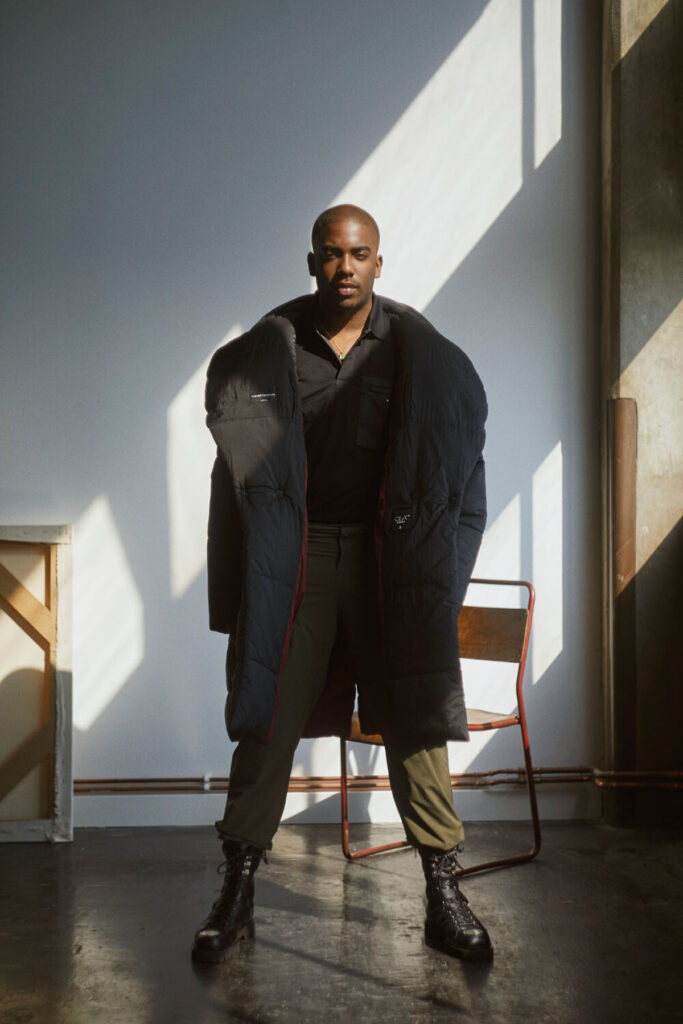
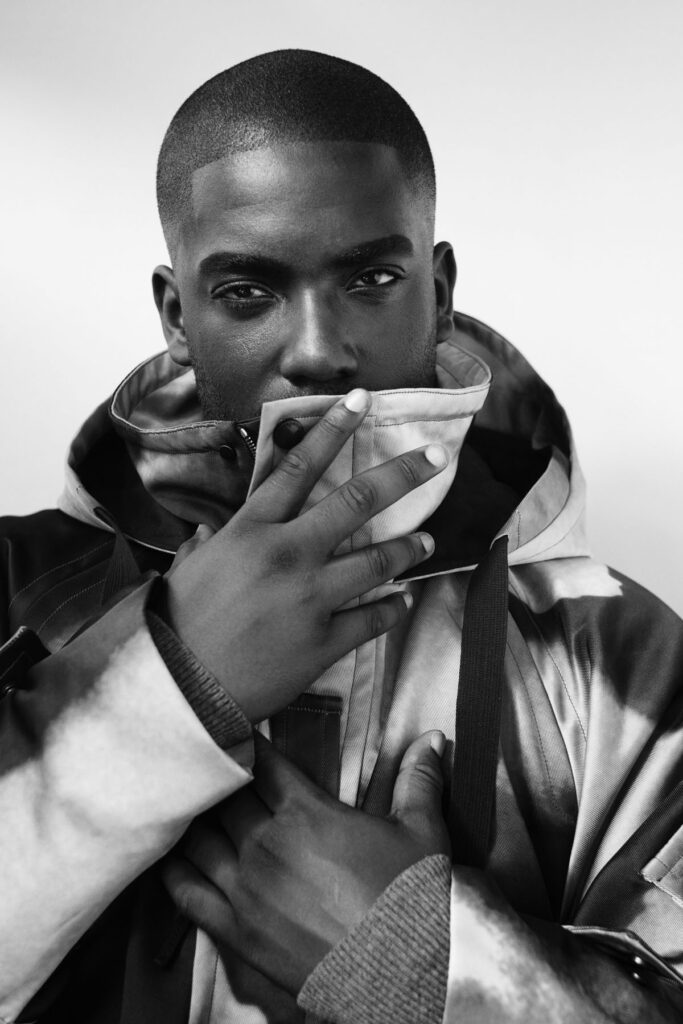
So, when we eventually get back to live shows that aren’t just a one-off like Bulgari, what will you be looking forward to?
The whole band getting back together; I love my band. Signing with a major label [Virgin], I was lucky enough to get what I wanted in terms of my live set up – so I have the whole works. But, the drum solos, the guitar, hearing new music live, even just being able to rehearse and perform that. There’re talks of a show at Jazz Café next year, so I’d be super excited about being on that stage. Headlining would be amazing because that’s the first place I ever performed. I’m looking forward to that, hearing new songs and performing new songs, just even rehearsing new songs cos everyone in my band’s so good. Sometimes, I don’t even want to sing I just want to hear how it all falls together – I’m excited for it.
Team
Photography DAVID REISS
Fashion SAM CARDER
Interview ELLIE BROWN
Creative Direction NIMA HABIBZADEH and JADE REMOVILLE
Grooming EMILY PORTER
Set LUCY WHEELER
Photo Assistant TAYO NELSON Fashion Assistant Harley O’Connor
Discover more of Collards music on Apple Music
Listen to Collard’s curated playlist for NR
Designers
- Jumper and Shirt QASIMI Gilet CP COMPANY Chinos NAPAPIJRI Shoes JIMMY CHOO
- Jumper MARNI at MATCHES FASHION Trousers EMPORIO ARMANI Earpiece RATHEL & WOLF
- Coat EMPORIO ARMANI Hooded Shirt LANVIN Trousers PRADA at MR PORTER Boots JIMMY CHOO
- Shirt Jacket JACQUEMUS at BROWNS FASHION Long Sleeve T-Shirt HOMME PLISSE ISSEY MIYAKE
- Trench Coat FENG CHEN WANG
- Trench Coat FENG CHEN WANG Necklace BLEUE BURNHAM Jumper HOMME PLISSE ISSEY MIYAKE
- Jumper RAF SIMONS at MATCHES FASHION Trousers HOMME PLISSE ISSEY MIYAKE Ring BLEUE BURNHAM
- Bomber Jacket and Trainers DIOR T-Shirt Y/PROJECT at MATCHES FASHIONTrousers PRADA at MR PORTER
- Jumper RAF SIMONS at MATCHES FASHION Trousers HOMME PLISSE ISSEY MIYAKE Ring BLEUE BURNHAM
- Coat and Boots EMPORIO ARMANI Polo Shirt PRADA at MR PORTER Trousers CP COMPANY